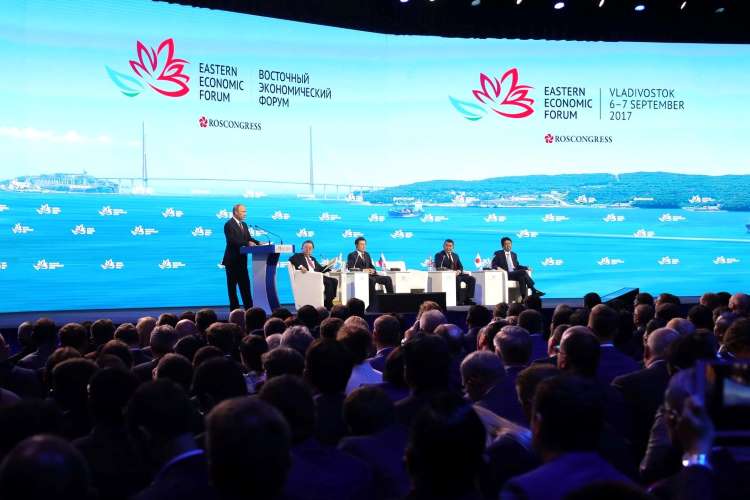
India’s Polar policy has assumed considerable significance with the notification of its Arctic Policy early this year and the passing of the Antarctic law by the Indian Parliament recently. For many South Asian countries, the Arctic is a distant place. Though the Arctic looks far away, whatever happens in the North Pole will have its impacts on them—by way of climate change or change in the energy circuit. However, with its ‘latitudinal quest’, India is the only South Asian country that sees itself as a significant player in the Arctic, given its deeper engagements with the major Arctic states.
Both the Arctic policy and the Indian Antarctic law are thus clear signals that India is committed to playing a proactive role in Polar affairs – with its own claim that India is a Third Pole country with the Himalayas providing a new segment of the world’s most sensitive climate zones.

Of late, both the Arctic and Antarctic regions have become complex and delicate with increasing geopolitical engagements of major powers. With its vast stretches of territory adjoining seas and oceans, India has reasons to get involved in Arctic affairs. The Himalayas function as the Third Pole serving as the fortress of India and other smaller South Asian countries from both geopolitical as well as ecosystem points of view.
When India notified its Arctic policy, it coincided with several developments in international relations, particularly when the major powers in the Arctic Council have taken an antagonistic position vis-a-vis Russia, its current Chairperson, with the outbreak of the Ukraine crisis. India has understood the geopolitical developments under the present Arctic dispensation have many ramifications, with NATO reasserting in the region. However, India is guarded in its policy responses given the future dynamics of India’s relations with the major stakeholders of the region such as Russia.
READ I Challenges to India’s Arctic policy amid great power rivalry
Scientific dimensions
India has shown considerable interest in the Arctic region because of its scientific engagements and collaborations. Here Science Diplomacy is the driver of India’s massive techno-scientific power and its global aspirations. As such India’s Arctic policy is enunciated as a multifaceted regime that is basically seeking to strengthen its scientific research and cooperation.
It also underlines the significance of “climate and environmental protection; economic and human development, transportation and connectivity; governance and international cooperation; and national capacity building in the Arctic region.” All this is envisaged in partnership with different stakeholders such as academia, the research community, business, and industry.
Basically, the Arctic strategy is to help India’s coordinated policymaking on the implications of ice melting in the Arctic for “India’s economic, military, and strategic interests related to global shipping routes, energy security, and exploitation of mineral wealth.” The policy underlines how climate change is critical for the agro-climatic conditions of countries like India, whose food security is significantly dependent on ecosystem stability. This applies to other South Asian countries too.
As such, there are several areas of collaboration between Polar studies and the study of the Himalayas, and Arctic research will encourage the scientific community in analysing the melting rates of the Third Pole–the Himalayan glaciers.
Economic Opportunities
India’s Arctic policy is also envisaged to strengthen cooperation with countries of the Arctic region under various fora such as the Arctic Council. But it would be a challenging task for India, to increase its participation in the Arctic Council with its Observer Status, given the complex issues associated with the post-Ukraine situation.
India recognizes that the Arctic governance is very delicate in the contemporary geopolitical setting and the region itself is governed by several national domestic laws, bilateral agreements, global treaties, conventions, and customary laws for the indigenous peoples. Thus, the Arctic states’ “respective sovereign jurisdictions as well as areas beyond national jurisdiction” need to be viewed within the framework of international and national regulations. Unfortunately, this is still a contested area.
India being one of thirteen nations holding Observer status in the Arctic Council has concerns when the council activities are put on hold. Obviously, the Ukraine war has had an impact on the geopolitics of the Arctic.
The eight-member Arctic Council has five NATO members—Canada, Denmark, Iceland, Norway, and the United States and seven of the eight Arctic states declared that they would ‘pause’ the work of the Arctic Council. They sought to halt all working group meetings as they did in 2014. However, Russia warned that any temporary freeze would “inevitably lead to the accumulation of the risks and challenges to soft security in the region.”
Naturally, India faces a strategic dilemma in the context of Western sanctions on Russia, particularly when it has several pending projects with Moscow. For example, an MoU was signed between NITI Aayog and the Ministry for Development of the Russian Far East and the Arctic on 4 September 2019 with a view to boosting “the strategic partnership between India and Russia by strengthening cooperation in trade, economics and investment.”
The agreement sought to “prepare a program for the development of the Russian Far East and Arctic region for 2020–25.” Likewise, India and Russia were exploring the possibility of the joint development of hydrocarbons on the Arctic shelf and Russia’s Far East. Reports indicated that they were mainly focused on energy cooperation, and exports of Russian hydrocarbons to India were expanding, with the two countries’ mutual interest in the implementation of joint LNG projects persisting.
Over the years, India’s energy ties with Russia have shown growing significance. When President Vladimir Putin visited India a few years back, Russia and India pledged to collaborate on oil and gas projects in Russia, including Russia’s Arctic shelf, and the shores of Pechora and Okhotsk Seas.
Russia was already supplying India with Arctic liquefied natural gas, while in 2017 Rosneft bought a 49% share of India’s Essar Oil Ltd. These deals were interpreted as part of a “trade-off” in the context of India’s self-assurance in addressing the threat of US sanctions and a signature on agreements to procure Russia’s S-400 air defence system. Evidently, Moscow’s partnership with New Delhi has made Russia inclined to seek Indian investment in the Arctic and other energy holdings.
Arctic Connectivity
India’s Arctic policy has underlined that the country has a great interest in the realm of transportation and connectivity. It says, “India ranks third in the list of seafarer supplying nations catering to almost ten per cent of global demand. India’s maritime human resources could contribute towards meeting the growing requirements of the Arctic.” It’s very clear from the Artic policy that India is committed to exploring the connectivity corridor between the resource-rich Arctic Region and International North-South Transport Corridor.
India has already initiated discussions with Russia on cooperation in connectivity via the Northern Sea Route and joint energy projects in the Arctic region. The Modi-Putin joint declaration in 2019 referred to the Chennai (India)-Vladivostok (Russia) maritime corridor which is expected to play a major role. Enhancement of the India-Russia joint trade commitment will definitely diversify India’s trade space.
When the Indian Prime Minister extended a $1 billion credit line for businesses interested in Russia’s Far-East region, he saw it as part of strengthening India’s Act Far East policy. This gesture is expected to “give new impetus to the development of economic diplomacy,” as Mr. Modi indicated in his speech. Certainly, the Far East region of Russia needs a lot of support and help given its geopolitical vulnerabilities.
India is expecting that ice-free conditions in the Arctic would facilitate the opening of new shipping routes and thereby lowering costs and reshaping global trade. India also knows that the Arctic is a rich storehouse of resources with huge deposits of undiscovered oil and natural gas. Hence India is concerned that the Arctic has become geopolitically very sensitive with major powers having vital stakes for security and commerce.
But India is very vigilant that its policy is put across within a framework of multilateralism and, of course, with a sufficient understanding of the ground situation. New Delhi knows that there is no alternative to a rule-based governance architecture in the Arctic. How to sustain this rule-based governance architecture is a real challenge for all stakeholders in the region, including India, as well as for their multilevel engagements. If the Arctic Council proceedings are halted for one or the other reason, the implications will be far-reaching, for all regions and all countries of the world.
The China factor in India’s Arctic policy
There are questions about the implications of China’s growing activities in the Arctic. India naturally considers China as a competitor in the Arctic with its deeper engagements. New Delhi has apprehensions when China projected itself as a ‘Near Arctic state’ with its new stakes in developing the Polar Silk Road. India’s opposition to the Belt Road Initiative is also a part of this apprehension.
New Delhi still fears the ‘String of Pearls’ project of China—whether it is real or imaginary—and obviously, everything is connected with this. But Russia can play an effective role in bridging the gulf between Beijing and New Delhi. When India has an interest in the NSR passage due to its geographical positioning, it tends to see the emerging actors in the region from a broader perspective. India being the third-largest sea-faring nation does not want to be lagging behind, in the future opportunities in the region.
At the same time, India knows that it cannot proceed without taking both Russia and China into confidence. This is certainly a challenging task before Indian diplomacy. However, India sees the partnership with Russia as crucial in its Arctic engagements. As an Arctic state with considerable stakes in the region, Russia can open up vast opportunities for India’s scientific and commercial interests.
The Western partners of India in the Arctic may not appreciate these collaborations, for obvious reasons. This is also likely to trigger further speculations when India hosts the Shanghai Cooperation Organisation (SCO) grouping next year, with India assuming its chair position. Many experts believe that SCO is a counterweight to NATO seeking to offset its eastward expansion. Evidently, India’s Arctic engagements depend on a host of geopolitical issues which got complicated in the post-Ukraine war conditions.
(Excerpts from the speech at the ‘Arctic segment’ of the Seventh Eastern Economic Forum (EEF), held at Vladivostok, Russia on September 7, 2022. KM Seethi an Academic Advisor to the International Centre for Polar Studies.)
Dr KM Seethi is Director, Inter University Centre for Social Science Research and Extension (IUCSSRE), Mahatma Gandhi University (MGU), Kerala, India. Seethi also served as Senior Professor of International Relations, Dean of Social Sciences at MGU and ICSSR Senior Fellow.

